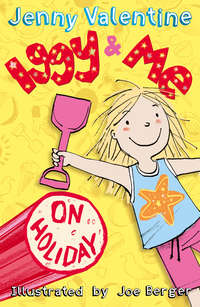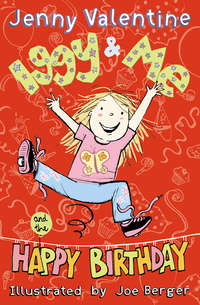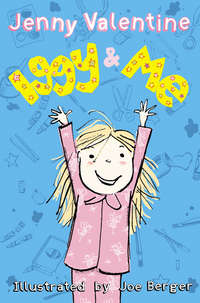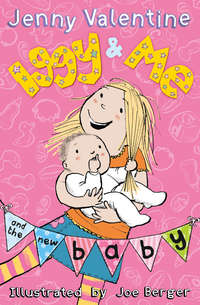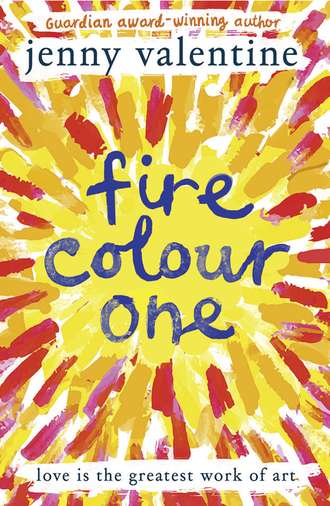
Полная версия
Fire Colour One
I’d taken a couple of pills from my mother’s well-stocked bathroom cabinet and I lay there waiting for the day’s sharp edges to blur into sleep. The sheets felt rough beneath me like thin cotton over sandpaper and my pyjamas twisted tight around my legs like a trap. I closed my eyes and imagined random objects in my bedroom bursting obligingly into flames, something Thurston taught me, a tailor-made way to relax. It wouldn’t work for everyone, he said, but it sure as hell worked for me. Behind my eyelids, everything was torched and blasted with fire. My shoes smouldered, my alarm clock warped and melted, my bedding was ablaze. I felt like a superhero on a day off, like a plume of smoke, cloud-wrapped, buoyant. I couldn’t move but inside I was flying. The skin on my palms seethed and bubbled. I was a burning candle, I was a pool of hot wax and then I was gone.
Some days inside my head there is nothing but fire. Most nights I sleep deep inside its bright, fast blooms. I have longed for it in random places – the old baths near our flat on Grafton Road, the vacant Embassy Hotel on South Grand, that copse of larch and ash beyond Ernest’s garden, the painted house downtown where my mother went to therapy for a while and left me in the waiting room willing the fish to broil in their gravelly, weed-wrapped tank. My fingers itch constantly for the length and neck and strike of a match. My heart swells and soars at a column of smoke against the sky. I pine for the flame’s lick, the sharp scorch in my lungs, the same way an addict pines for the needle. Thurston said once that I had the sweet moment of surrender all tangled up with love, and maybe he was right, but that didn’t mean I knew the first thing about how to untangle it.
I tried to keep my fires small after we moved back here, small and secret. Hannah was watching me like a hawk, keen to ship me off to some correctional centre or other, now that she could do it on the good old National Health. I couldn’t let her see me. I needed to be cleverer than that. A wastepaper basket, some old clothes, dry leaves, a length of rope, everything has its own flame. Everything burns at its own pace, with its own particular smoke and smell. I made fires every day because I had nothing better to do; little heaps of dry matter assembled and lit before breakfast, after lunch, behind buildings, on wastelands, on walkways and under bridges. I was fast and precise. I could start one in seconds, get up and walk away, my mind a little emptier, my breathing easier. Nothing got damaged, not by the small fires. They were actually pretty useful in their way, a kind of tidying up, an imposing of order and neatness on things. They didn’t do any harm.
I was twelve, my first proper fire, and I was alone. I hid in a hollowed-out oak in a quiet dip in Griffith Park, dragging in gathered sticks and strips of bark like a worker ant. I was careful about building it. I took my time. I had a rolled-up old magazine of Hannah’s in my back pocket for starting it, hungry looking ladies with tight trousers and tight smiles. I had to twist the pages just so – too loose and they’d flare out before the wood could catch, too much and they wouldn’t burn at all. I’d watched Lowell do it often enough in the cramped, weed-choked yard of our apartment. Now it was my turn.
I only had one match. I don’t remember where I found it. I held it up and even I could see how small and pitiful it looked, how unlikely it was to start anything worth bragging about. I breathed in and ran the match across the gritted bottom of my shoe, felt the stroke of it, heard the little pucker of air when it caught. And then I lifted it, burning, into view. It was thrilling to me. It was the start of everything, right there in my hand.
I shielded the tiny flame, moved it slowly so its own breeze didn’t put it out, and then I touched it to the twisted paper. The smiling ladies writhed and blackened and the smoke rose in a rainbow of greys. When the fire leapt up I felt its heat, warped and dancing in front of me like liquid, like magic. I didn’t know a flame could burn so many shades. I’m saying every colour in the world was in that fire, and watching it burn was the biggest, boldest feeling. I’ve never felt it again like the first time, not quite like that.
I got out of there when I had to, when the heat and the smoke made it hard to see and harder to breathe. I stayed low and made sure there was nobody around. My hands on the ground were covered with dust and ash. They looked like statues’ hands. I moved away fast and then I stopped to watch the smoke from my fire rolling fat and dark as a storm cloud. At the top of the park, from the observatory, you can see way out over the endless fume-hung map of grid streets and thin trees and squat tower blocks and lit highways, as far as the horizon, further. My fire was a little insult to all that, something wild in plain view of the city. It felt like a door had swung open, like I’d been kept in an airless room all this time and finally I could breathe. I knew I should hurry, but it was like trying to run in a dream. Bright sparks and flakes of charred leaf floated down through the blue behind me, gentle as you like, and the flames licked and snapped like a dragon, biting clean through solid wood.
I couldn’t see the smoke on the subway but all the time I knew it was there. I looked up and there was a boy, pale and dark-haired and skinny, older than me, fifteen it turned out, and he was holding up a handwritten sign and looking at me like he wanted to make sure I saw it. It read, WHAT HAVE YOU DONE? I went red hot and looked at my dust-covered shoes.
“Psst,” he said, and I looked up again and a new sign read, WAS IT WORTH IT? DID IT FEEL GOOD? and I nodded and looked straight at him and we smiled.
That was Thurston. That’s how we met. On the subway, eight stops from Griffith to home, he showed other people other signs and I watched him. He held up the signs and waited for them to notice, and the whole time he stayed looking at me. An old lady got WHERE DID YOU HIDE IT? IT WILL ALL WORK OUT FINE IN THE END. A shifty looking guy got LEAVE IT ALONE and YOU KNOW IT MAKES SENSE. A girl about the same age as Thurston, her hair tied up high on her head, earrings swinging, got BE A BETTER LIAR and OH. MY. GOD. Each time, they acted like he could see inside their heads and they coloured right up and couldn’t look right at him again.
I loved it. I’m telling you, nobody had made me smile like that my whole goddamn life. I got off at my stop because I had to but I didn’t want to leave and when I waved at the boy he winked at me and held up BOUND TO MEET AGAIN.
Back home, Hannah and Lowell were out, but they’d be back soon, crashing through the door and trampling on my quiet with their verdicts on the relentless heat, the price of everything, and the vital overall importance of their day. Much better, this peace, this alone time, this thinking about the boy on the subway, this picturing my fire. As it burned, I washed my hands and face, scrubbed the muck from under my nails, pulled off my clothes and hid them under the bed. The smell of it was still in my shirt, sweet and black and smoky. I put my face in the sleeve at the bend in my elbow, and I breathed.
I was hooked right then, on both of them, the boy and the fire. I don’t mind owning up to that.
In London, I’d have dreamt about Thurston if I could. I’d have traded him for fire, but even in my sleep I couldn’t find him. The next morning, the noise of the real world descended like a net and caught me in it. Somewhere a lorry was reversing, a car door slammed. I could hear Lowell making coffee, banging cupboard doors, and sweating out his hangover. I felt the weight of my own body like gravity, pinning me down in the wrong place, on this bed. I opened my eyes and everything was the same as the night before, unfamiliar, intact and unspoilt. No plain blue still-as-a-picture California sky but something lower and rolling and cold. No posters on the walls like in my old room, no piles of clothes or comic books, just unpacked boxes. No Thurston throwing stuff at my window, waiting on the corner so we could begin our day. No heaps of ash, no charred and twisted remains, just carpet and plaster and metal, and a father I’d never met and didn’t want to meet, dark on the horizon like a storm. I couldn’t have been more disappointed.

My mother has four main stories she likes to tell: the edited highlights of her modelling career (who said what, who touched her where), her disastrous marriage to Ernest (no redeeming features), her many visits to Europe (ditto – Paris is littered with dog shit apparently, Venice is a rip-off and Florence is a bore) and the time she spilt a bowl of soup at the American Ambassador’s house in Regent’s Park. She never talks about anything real. She never gives herself away. It’s like her life started at twenty-one, like nothing happened before that was worth mentioning.
“Maybe it didn’t,” Ernest said to me once. “Maybe things were awful,” and it made sense, I suppose, of the way she drinks and thinks of everything as a fight, and grabs hold of the day like it’s a sheer drop and if she doesn’t dig her nails right in, she’ll fall.
Back home, whenever we had people over, Hannah rolled out variations on her four stories while Lowell pretended to cook deli-bought meals from scratch, throwing his head back when he laughed, rattling pans and putting on a show. The moment the doorbell rang he was out on stage and she was prepping herself under the lights. I guess it made them both feel as if they were working. My job was to pour the drinks and play it like we were your dream family, like really the best of friends. We couldn’t keep it up for long. Four minutes was about the limit. If we strayed into five, one or the other of us got bored or cranky and had to leave the room. There was no trace of our usual cook-your-own pizza and stay-out-of-sight arrangement. They didn’t work their way through a bottle of vodka in old T-shirts if there were guests in the house. They hid the TV in a cupboard and acted like we spent our spare time holding hands and listening to recordings of T.S. Eliot reading ‘The Waste Land’.
I used to think it was a miracle that anyone believed them. But people believe what they see. And mostly they see whatever is put in front of them, if it’s in their interests to believe. Thurston told me that, and he was right. If someone gave you a fat stack of money and told you to spend it, you’d like to think the money was real. If they handed you a diamond and said it was worth as much as a house, you’d want it to be true, because you’d be getting something out of it.
The first and only time Thurston met Hannah and Lowell, he showed up dressed as a girl. More precisely, he showed up dressed as Hannah, wearing clothes he must have taken from her closet some time before, when I wasn’t looking.
Lowell answered the door.
“Your friend’s here,” he said to me.
“What friend?”
“Charlotte.”
I didn’t look up. “I don’t know anybody called Charlotte.”
“Well she’s here,” he said, “and she’s asking for you.”
This girl came into the room, all long legs and lipstick and fingernails. Beautiful, flawless, just Hannah’s type, the kind of girl I avoided like the plague, who wouldn’t notice if she tripped over me in the street in her Manolo Blahniks.
“It’s Charlie,” she said, “remember?” Stretching out towards me, all grabby and polished, like some kind of sisterhood reunion. I looked down at her hands and I saw the little star tattoo at the base of the left thumb and it was only then that I knew it was Thurston.
“Oh God. Charlie!” I said. “So sorry.”
Charlie was bespoke, made-to-measure perfect for Hannah and Lowell to fall in love with, an Orange County girl, drowning in labels, with money in her veins and parents who did, “Oh, I don’t know, something in the movies.” She dropped names in a way that made the sweat break out on Lowell’s forehead, always the first name twice, to show how well she knew them.
“Leo, Leo DiCaprio’s got one of those,” she said, pointing to our crappy vintage-style blender. “Cate, Cate Blanchett would just love how you’ve done this wall.”
“She’s got style,” Hannah said, watching her own skirt stretched tight over Thurston’s narrow hips.
“Good manners,” Lowell said, doing the thoughtful movie-star clench with his jaw, already wondering whether she had a crush on him, already working out how to get in with her people.
It didn’t for a second occur to them that this was a piece of on-and-off homeless, skinny male white trash from the uglier side of town, graffiti maestro, street artist, performance poet and pickpocket, with a mild criminal record (trespass, jaywalking, vagrancy) and no sway whatsoever in the Hollywood Hills. Even if I had told them, right then I don’t think they would have believed it. Just the week before, Thurston had strung a huge banner from the top of the Ocean Palms building, hand-stitched in letters more than two metres tall, FROM UP HERE WE ARE ALL NOBODIES. That wouldn’t have meant a thing to Hannah and Lowell. There was nothing in that for them.
“Can I take your daughter out tonight?” Charlie asked, and they looked surprised as hell that someone so spectacular might know me, but they said yes, of course they said yes.
Thurston kissed them on both cheeks when we left and they didn’t feel the stubble underneath his smooth skin, didn’t notice the bitten-down nails behind the false ones.
“I can’t believe you just did that,” I said.
“No big deal,” he said. “Everyone here is faking it.”
“I suppose.”
“How the hell,” he asked me, taking my arm on the stairs, “does anyone walk in these shoes?”
We stopped at a restroom round the corner from our apartment. He’d stashed his clothes there, his baggy black T-shirt and ancient jeans. When he came out looking like Thurston again, I thought he was a hundred times more beautiful than Charlie, but I kept my mouth shut. I didn’t say so.
He grinned. “They loved me, right?”
“You were perfect,” I told him. “How could they not?”
“Jeez,” he said, “your parents are easy to please.”
Charlotte didn’t appear again. A while later, Hannah and Lowell asked me what happened to her.
I was reading about a sinkhole that had opened up out of nowhere underneath a man’s house and swallowed his bed with him in it.
“I haven’t seen her,” I said.
“Why doesn’t that surprise me?”
“I get it,” I told her. “Too good for me, right?”
“Such great potential,” Hannah said, like she’d know.
“I wanted to get her parents over at the weekend,” Lowell said.
I suppose they wanted to believe I’d had a friend with connections, that it might almost make me somebody.
“She died,” I told them, and I didn’t care if they bought it or not. “She moved away.”
Lowell’s face hovered somewhere around shock at the further thinning of his address book, and Hannah said, “Well, which is it?”
“Both,” I said. “But not in that order.”
They didn’t bother to argue
Gullible works both ways. Tricking people requires their full co-operation.
“We’re lazy,” Thurston once told me. “We’re happy to have the wool pulled over our eyes, because everything else is just plain hard work.”

I call my mother Hannah because she told me to. When I was about seven, she said it was time to stop being a baby and start using her proper name.
“Otherwise,” she said, turning to enjoy her reflection from behind, “the older you get, the more you’ll age me.”
She is a beauty. You’d have to give her that. Tall and dark and glossy, like some kind of racehorse, with legs and curves that people feel the need to stare at in the street. We are not one bit alike.
I am plain-looking, skinny and flat-chested and small, and it suits me. I live in thrift-shop jeans and secondhand sweaters because they come in under budget and under the radar and they’re just easy. I cut my hair short like a boy for the same reason. I’ve banked myself plenty of time and money by never minding too much what I look like. I think my day is about four hours longer than Hannah’s without all the grooming in it. It’s really quite liberating, not giving a shit. What am I missing out on exactly – make-up, brand anxiety and crippling self-doubt about shoes? Big deal. Poor me. If I was in charge, mirrors would be for making sure there’s nothing stuck in your teeth or sticking out of your nose or tucked into your trousers, nothing more. I’m not likely to start staring into one and wishing I was different.
I used to wonder if that’s why Thurston chose me, because I was unremarkable, because I’d be useful to him that way. Every hustler needs an invisible friend. He laughed at me when I asked him.
We were making him a mask out of old, broken sunglasses, sticking the smashed lenses on to a plain latex face, so that when people looked at him, all they would see was repetitions of themselves.
“I like you, Iris,” he said, holding it up in front of his face, pulling the strap to the back of his head, “because you are you.”
I was fourteen. I’d known him on and off for two years and he was the only thing I had worth knowing. It was the nicest thing he could have said to me. My smile just about exploded, reflected at hundreds of angles by his mirrored mosaic of a face.
Hannah and Lowell think I am determined to be ugly. They think my attitude is aimed at them, out of spite. It’s beyond them that somebody would go a whole day without looking in the mirror. They wouldn’t dream of leaving the house without a layer of light-reflecting foundation and an accessory with a three-figure price tag. Looking good is the actual bedrock of their moral code. Presentation is ethics to them, which is why they bought me the dress. Hannah threw it down on my bed like a gauntlet, this loud patterned thing with a belt. I avoided it, walked around it like you would a patch of vomit in the street. I took a shower, pulled on yesterday’s clothes and went downstairs for breakfast.
It was Saturday, the weekend after Hannah called Ernest and agreed to bring me (I think) for a price. Since then, you could see they’d been shopping. Lowell was pacing the kitchen in a stiff pale suit that made him look like a rectangle, like a man in a cardboard box. Hannah had on a mink silk top and a skirt so tight I wasn’t sure she could move. I think she had to cross her legs the whole time to fit into it. They looked like they’d just stepped out of a shop window. I wondered how many hours the two of them had spent fantasising about the scene at Ernest’s deathbed and the muted, elegant, expensive clothing they could suddenly afford to wear. I wanted to put a match to the hem of her skirt and set it alight, drop a hot coal down the neck of his jacket and watch it swallow up the fabric like a black hole.
“Morning,” I said.
Hannah leaned against the kitchen counter, nursing a cigarette for breakfast. My mother often smokes instead of eating. She’d sell you a diet book about it if someone would let her. Her blown smoke bloomed in the bands of sunlit air that striped the kitchen, vanishing in its shadows, expanding to fill the room.
“Kiddo,” Lowell said, like every morning, in his faked transatlantic drawl. “Nice of you to show up.”
“Where’s the dress?” Hannah asked, and I poured myself some cornflakes before I told her it was still in the wrapper.
“Aren’t you going to wear it?”
“Nope. You should definitely take it back.”
Hannah pointed at me with her smoking hand and an inch of ash fell soundlessly on to the soft suede toe of her brand-new shoe.
“Well you can’t go like that.”
“Why not?” I looked down at myself. “I’m always like this.”
“Lowell,” she said, still pointing. “Talk to her.”
Lowell’s jacket was too starched and too big, like the cardboard box was trying to swallow him whole.
“It’s a great dress,” he said, “really on-trend,” as if his opinion mattered, like that would swing it. He talked like one of the girls at my old high school. I thought he’d fit right in there, simpering over labels in the hallways, bitching in the lunch queue about boys.
“So you wear it,” I told him with my mouth full. “Help yourself.”
“Just once,” Hannah said through gritted teeth.
“Just once what?” I asked her, but I knew the answer. She wanted me to slot seamlessly into the picture-perfect lifestyle she had filling the space in her head, to stop being difficult and strange, to dress up and shut up and play along. We stared at each other. She looked away first. I always win that game.
Lowell had already given up and gone back to his magazine. There were lots of people in it he’d stood quite close to over the years. Things were happening. Men more successful than him were starting to lose their hair.
“Let her wear what she likes, Hannah,” he said. “A dying man is going to have other things on his mind.”
My mother put her hands together in prayer at the word ‘dying’ and looked up past the burst radiator stains on the ceiling.
“God knows,” she said, “we could all do with a bit of good luck right now.”
I asked her where she thought God filed that kind of prayer, the please-harm-others-for-my-benefit kind, and she ignored me. “In a box marked DAMNED probably,” I said, “in a whole archive called Be Careful What You Wish For.”
“What do you care?” she asked me. “You’re an atheist, aren’t you? You don’t believe in God.”
“Humanist,” I said. “There’s a world of difference.”
Hannah lit a new cigarette off the old one so she was holding two. She said, all deadpan, like it was the last thing in the world she was really thinking, “You must explain it to me sometime.”
Thurston made a God box once. It was like a mailbox, with a slot, and he wrote on it PRAYERS ANSWERED. You were supposed to write your prayer and post it. That was the idea. He left it for four days on the corner of Westwood and La Conte, near the University. When he went back there was some trash in it, a couple of crushed cans, a banana peel and half a bagel. There was some angry stuff about blasphemers and the wrath of the Lord. And mostly there were wish lists, money troubles, exam results, job opportunities, and a couple of lonely hearts. My favourite one was written in pencil on a square of pink paper – THAT THIS BOX IS FOR REAL.
My cornflakes were stale and chewy. The milk was on the turn. New outfits aside, it hadn’t been a good month money-wise, again. I knew that’s why we were doing this. Hannah had slot-machine eyes, especially now she knew Ernest was on his way out. She was desperate to get there and clean up. Beneath the surface she trembled with it, like a greyhound on the starting blocks, like a size zero bull at a gate.
“When did you last see him?” I asked.
“When did he abandon us? I don’t know. Thirteen years? Fourteen? Maybe twelve. When was it, Lowell?”
Lowell shrugged. “Beats me.”
I pushed my bowl away. “And why are you all dressed up, exactly? What’s with that?”
“We’ve got to look like we’re doing well,” she said, pinching a strand of tobacco from the surface of her tongue without smudging her lipstick, the same smashed cherry colour as her nails. “I don’t want him thinking we need his money.”
As if a new outfit could do that. As if a throw-up dress or a stomach-bug brown suit would hide our flock of overdrafts, a good silk blouse erase the sly and bottomless need from our eyes.
“Why do you care what he knows?” I said.
“We’re going in there with our heads held high,” said Lowell.
“And coming out with our hands full, right? To the victor the spoils?”
I didn’t want a thing from Ernest. I didn’t want to know him. I thought they should go without me. I had my eye on a clean conscience and the place to myself. I’d exercise control, build a fire in the grate and feed it kindling so it stayed small but never went out. I’d write letters to Thurston at all the addresses I could think of – the bar where Uncle Mac drank, the record store he liked in Echo Park, everyone at my old apartment building. I’d track him down so I could tell him what had happened, where on Planet Earth I was. I’d leave the lights off and the blinds down, be nothing but a glowing, empty house. I wasn’t interested in helping Ernest feel better about himself. I didn’t have room to play suck-up to my sick old stranger of a father for what he might be leaving me in his will.


